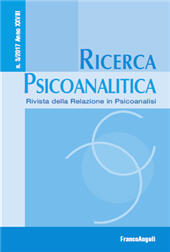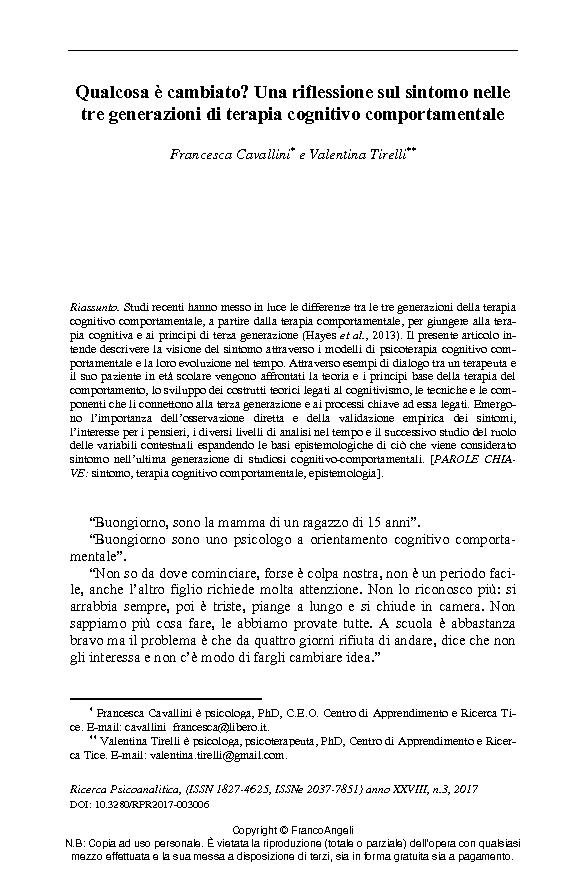Qualcosa è cambiato? : ua riflessione sul sintomo nelle tre generazioni di terapia cognitivo comportamentale
67-78 p.
Studi recenti hanno messo in luce le differenze tra le tre generazioni della terapia cognitivo comportamentale, a partire dalla terapia comportamentale, per giungere alla terapia cognitiva e ai principi di terza generazione (Hayes et al., 2013). Il presente articolo intende descrivere la visione del sintomo attraverso i modelli di psicoterapia cognitivo comportamentale e la loro evoluzione nel tempo. Attraverso esempi di dialogo tra un terapeuta e il suo paziente in età scolare vengono affrontati la teoria e i principi base della terapia del comportamento, lo sviluppo dei costrutti teorici legati al cognitivismo, le tecniche e le componenti che li connettono alla terza generazione e ai processi chiave ad essa legati.
Emergono l'importanza dell'osservazione diretta e della validazione empirica dei sintomi, l'interesse per i pensieri, i diversi livelli di analisi nel tempo e il successivo studio del ruolo delle variabili contestuali espandendo le basi epistemologiche di ciò che viene considerato sintomo nell'ultima generazione di studiosi cognitivo-comportamentali. [Testo dell'editore].
Recent studies have highlighted the differences between the three generations of cognitive behavioral therapy starting from behavioral therapy to arrive to cognitive therapy and the third-generation principles (Hayes e coll., 2013). This article describes a view of symptoms through the models of cognitive behavioral therapy and their evolution in time. With the help of examples of dialogue between a therapist and a young patient, the author describes the theory and the basic principles of behavioral therapy, the development of the concepts related to cognitivism, the techniques and components that link them to the third-generation and its key processes. From this emerge the importance of direct observation and the empirical validation of symptoms, attention for thoughts, different levels of analysis in time and the study of the role of variables in the context while expanding the epistemological basis of what is considered a symptom in the latest generation of cognitive behavioral scholars. [Publishers' text]
.
-
Artikel aus derselben Ausgabe (einzeln erhältlich)
-
Informationen
ISSN: 2037-7851
KEYWORDS
- Sintomo, terapia cognitivo comportamentale, epistemologia
- Symptoms, cognitive behavioral therapy, epistemology



